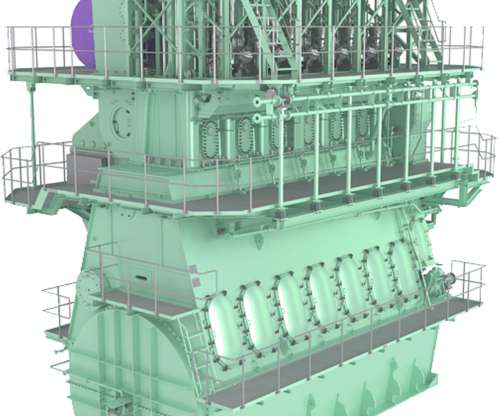Eastern Pacific Shipping, OCI & MAN partner to develop methanol & ammonia as marine fuels; retrofits and newbuilds
Green Car Congress
MARCH 6, 2021
The partnership involves using select conventional vessels from EPS’ existing tanker fleet that use MAN engines to be retrofitted, allowing them to be powered by methanol and ammonia which will be supplied by OCI. Also, EPS will construct newbuild vessels with MAN engines powered by the same two alternative marine fuels.












Let's personalize your content